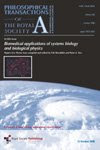Almost half of new electricity is now clean and green is long awaited good news but there is still along trek ahead in an ever tightening schedule!

"That's a lot of clean power. Almost half of new electricity generation is now renewable, and the costs of wind and solar power are falling sharply. It "should give governments confidence to forge a robust climate agreement" next year, says Achim Steiner, director of the United Nations Environment Programme (UNEP).
This comes a week before the Intergovernmental Panel on Climate Change's assessment of how to prevent dangerous climate change. The IPCC will stress the importance of quickly converting to renewables.
The latest annual Global Trends in Renewable Energy Investment, published today by UNEP, reveals that 44 per cent of all generating capacity installed last year around the world was renewable. That is despite a 14 per cent decline in renewables investment, and in new electricity generally.
But the politics of green energy are changing fast. China is now the world's leader, having overtaken Europe. Last year, China invested $56 billion in green power.
Going clean
The green bubble seems to have burst in cash-strapped Europe, which was the vanguard of renewable energy for more than a decade. The continent cut investment by 44 per cent.
The only big exception was the UK, which increased investment by 12 per cent despite rumblings of discontent in the governing Conservative party. For the first time, the UK outspent Germany, with projects like the giantWestermost Rough wind farm leading the way.
Japanese investment also soared, increasing by 80 per cent. This was thanks to a rush to install solar panels, after nuclear power stations were closed following the 2011 Fukushima disaster.
Renewables kept 1.2 billion tonnes of carbon dioxide from being emitted in 2013, says report author Ulf Moslener of the Frankfurt School of Finance & Management in Germany. Aside from hydroelectric dams, photovoltaic solar panels and onshore wind turbines are the biggest contributors.
The cost of generating solar power has fallen by 25 per cent since 2009, and the cost of wind power has fallen 53 per cent over the same period. As a result, the report says a growing number of such projects are being built without any subsidy. What's more, share prices in clean-energy companies, which have been in free fall since the start of the global recession, rose 54 per cent last year."









